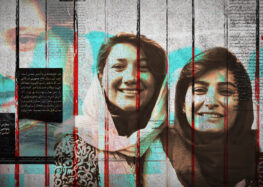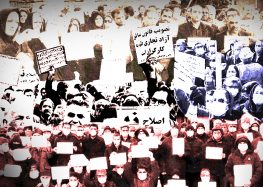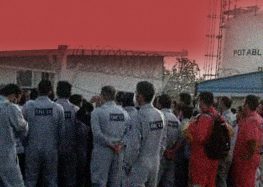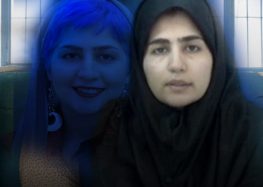Bus Drivers’ Union Leader Awaiting Sentencing for Peaceful Labor Activism

Ebrahim Maddadi, a labor activist and leading member of Tehran’s bus drivers’ union, is awaiting sentencing after standing trial on April 16, 2016. Arrested for his peaceful activism, Maddadi has been charged with “collusion and assembly against national security,” his lawyer, Saleh Nikbakht, told the International Campaign for Human Rights in Iran.
Maddadi, deputy chairman of the Union of Workers of the Tehran and Suburbs Bus Company, was arrested on several occasions during the past eight years, and served three and a half years in prison (2008-2011) for his peaceful activism. He was charged with “collusion and assembly against national security.”
Maddadi was last arrested on April 29, 2015, two days before International Labor Day (May 1), along with three other union activists.
Independent labor unions are banned in Iran, strikers are often fired and risk being detained, and labor leaders face long prison sentences on trumped up national security charges.
Nikbakht also represents Davood Razavi, a board member of the bus drivers’ union who was arrested at the same time as Maddadi. Nikbakht told the Campaign that Razavi was tried in January 2016 and sentenced to five years in prison for “collusion and assembly against national security.” Razavi is currently awaiting a ruling on his appeal.
According to the bus union’s website, Maddadi and Razavi were arrested in their homes while they were preparing for Labor Day gatherings by Intelligence Ministry agents on April 29, 2015. Maddadi and Razavi were held at Evin Prison’s Ward 209, which is controlled by the Intelligence Ministry, and released after 22 days on 1 billion rials (about $33,000 USD) bail.
The website also reported that Reza Shahabi, another member of the union’s board, has served five of his six-year prison sentence and is now on medical furlough. Shahabi was sentenced to an additional one year in prison in March 2015 by Judge Mashallah Ahmadzadeh; the sentence was upheld by the appeals court.
Punishment for any kind of organized labor protest is swift and severe. Instances of workers being fired after their participation in protests are numerous in Iran. For example, nearly 1000 workers at the Safa Rolling company in Saveh were fired in February 2015, and as the protests over unpaid wages continued, others who joined the strikers were fired as well.
“The Union of Workers of the Tehran and Suburbs Bus Company condemns these punishments against labor activists and calls for an end to the security and police state surrounding workers and teachers, and demands the freedom of all workers and teachers who have fought for their rights,” said the union in a statement on April 16 2016.
“We state once again that workers and other union activists will never set aside their just demands even in the face of pressures from the security and police forces,” continued the statement.
The International Labor Organization (ILO), of which Iran is a member, mandates the right of workers to associate freely and bargain collectively, and its Committee on Freedom of Association is charged with investigating complaints relating to its observance by member states. Its March 2014 report notes Case No. 2508, in which the International Trade Union Confederation (ITUC) and the International Transport Workers’ Federation (ITF) lodged a complaint against the Iranian government.
The complaint cited “continued acts of repression against the local trade union at the bus company, including: harassment of trade unionists and activists; violent attacks on the union’s founding meeting; the violent disbanding, on two occasions, of the union general assembly; and the arrest and detention of large numbers of trade union members and leaders under false pretenses (disturbing public order, illegal trade union activities).”
Iran is also obligated under international law. It is a signatory to the International Covenant on Civil and Political Rights, which mandates in Articles 21 and 22 freedom of association and guarantees the right to form trade unions, and to the International Covenant on Economic, Social and Cultural Rights, which guarantees in Article 8 the right of workers to form or join trade unions and protects the right of workers to strike.
The Iranian Constitution also contains provisions for such rights: Article 26 guarantees the right to form “parties, societies, political or professional associations,” and Article 27 states that “Public gatherings and marches may be freely held, provided arms are not carried and that they are not detrimental to the fundamental principles of Islam.”






